Provide indirect patient care and still be a vital member of a medical team
Story at a Glance
Many people in healthcare work behind the scenes. They like the idea of helping people, and want to work in the medical field. But they prefer work environments that are calm and quiet. A medical lab technician job may be just what you’re looking for. This article covers:
6 common characteristics signaling a healthcare technician job may be right for you.
8 indirect patient care careers.
- Medical/Clinical Lab Technician
- Cytogenetic Technician
- Histotechnician
- Pathology Assistant
- Nuclear Medicine Technician
- Anesthesia Technician
- Radiation Protection Technician
- Medical Equipment Repair Technician
The education and credentialing required for each.

Are you interested in healthcare, but prefer working behind the scenes? We hear a lot about careers that provide direct patient care. But it may surprise you to learn there are indirect patient care medical careers available. These medical lab technician roles are important in field of medicine and today we’re going to give you a snapshot of eight of them.
- Medical/Clinical Laboratory Technician
- Cytogenetic Technician
- Histotechnician
- Pathologist Assistant
- Nuclear Medicine Technologist
- Anesthesia Technician
- Radiation Protection Technician
- Medical Equipment Repair Technician
6 characteristics signaling a healthcare technician job may be right for you
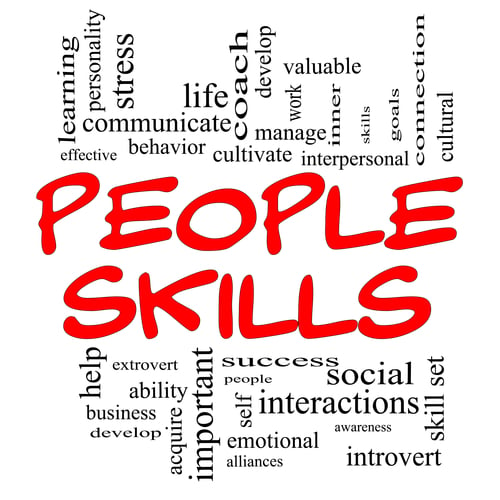 Are you a little uncomfortable interacting with people all the time? Feeling drained of energy when talking with others without periods of quiet could mean you’re introverted. That means you need time away from lots of activity in order to recharge yourself. Extroverts, on the other hand, gain vitality from being around people. That’s how they rejuvenate themselves. The good news is that healthcare needs both types of personalities.
Are you a little uncomfortable interacting with people all the time? Feeling drained of energy when talking with others without periods of quiet could mean you’re introverted. That means you need time away from lots of activity in order to recharge yourself. Extroverts, on the other hand, gain vitality from being around people. That’s how they rejuvenate themselves. The good news is that healthcare needs both types of personalities.
Even if you identify yourself as an introvert, you may still wonder if a laboratory-type job is right for you. If any characteristic of the following six sounds like you, it could be.
You enjoy science – The careers we’re reviewing in this article all have a basis in chemistry, biology, and physiology. If you enjoy science, chances are high you’ll be happy in at least one of these careers. Don’t worry if you didn’t like science in school. Interests change over time. All you need are a strong sense of curiosity and enjoyment in learning.
You attend to detail – You’ve probably worked with people who don’t pay attention to details. As a result, mistakes get made, and tasks have to be done again. But if you’re someone who is meticulous and precise in gathering particulars, then medical labs need you. Many of these indirect care careers have to analyze and compile data to help doctors diagnose and treat their patients.
You strive for consistency – If you agree that consistency in work can be reached through repetition and routine, then working in a lab may be perfect for you. If you’re someone who can repeat tasks and remain focused and careful, lab analysis and research positions are good options for you to investigate.
You prefer working with patients indirectly – As you may have guessed by now, you don’t have to be interacting with patients all day to make a difference in their lives. A career in a laboratory medicine allows you to play an integral role in the healthcare system without being center stage. Even if you sometimes have to draw blood, or provide instructions to people about what they need, the majority of your time will be spent in a non-chaotic, secluded work environment.
You desire job security – Allied health technician jobs are relatively secure and stable. According to the Bureau of Labor Statistics (BLS), on average, jobs for medical technicians are projected to increase at a faster-than-average rate of 14% through 2026. A contributing factor for the growth is an aging population with ongoing medical issues.
You want to begin your career quickly – Many healthcare careers require an extensive education. Most medical lab technician training programs can be completed in two years or less. That means you’ll be in the field a lot sooner.
If any of these attributes describes you, then you may be someone who is well suited to laboratory and research work in healthcare.
8 medical lab technician careers
Of the following 8 careers, no one is more important than the other. Although some of the duties of each job may be similar, what is studied and researched is not. When sifting through the options, consider what appeals to you most.
Most of the careers fall in the category of Medical/Clinical Lab Technician (MLT), although there is also a job title specifically related to that. We’ll cover the general MLT first, then proceed to specific specialties within the medical lab technician field.
Medical/Clinical Lab Technician
 Job Responsibilities: Lab technicians, or MLTs, work with integrated systems and perform mechanical or diagnostic tests in medical laboratories. Some MLTs work independently while others prefer to work in companies where they’re part of more extensive teams of professionals.
Job Responsibilities: Lab technicians, or MLTs, work with integrated systems and perform mechanical or diagnostic tests in medical laboratories. Some MLTs work independently while others prefer to work in companies where they’re part of more extensive teams of professionals.
Lab technicians perform a variety of tasks. Collecting samples, studying and performing tests on anything from bodily fluids to biopsies are only some of the functions you’ll perform. You’ll use a variety of equipment and software programs to conduct thorough and accurate tests. You’ll also be expected to record information you discover for review by doctors, physicians and scientists. Maintaining and sterilizing your lab equipment are also elements of the job.
From time to time you may be asked to acquire samples from patients, but won’t establish ongoing relationships them.
Lab technicians work in a variety of medical settings. Dental offices, clinics, and ophthalmic labs are only a few.
Education Required: For the most part, to become a technician, you’ll need an associate degree. If you aspire to become a technologist, you’ll have to pursue a bachelor’s degree. Both degree levels include coursework in biological sciences, lab management, chemistry, and statistics. Although there are short-term certificate programs available, you may discover an individual with more education is given preference by employers. Associate degree programs last 18-24 months. Bachelor degree programs require a four-year commitment.
Regardless of the educational path you select, you’ll learn how to use medical laboratory equipment and how to conduct data analysis. You’ll also explore content such as immune hematology and become proficient in studying biological samples.
Some ophthalmic and dental labs may be willing to provide on-the-job training. In those situations, you can get started with only a high school diploma. However, to be hired in a medical or clinical lab, you typically need an associate’s or bachelor’s degree. The higher your level of education, the better your chances are of being hired.
Credentialing: Each state differs on the requirements for laboratory workers. You may be required to obtain a license, become certified, or to pursue some type of registration. Contact your local State Board of Health or Board of Occupational Licensing to find out your state’s criteria. You can also refer to the American Society for Clinical Laboratory Science or the National Accrediting Agency for Clinical Laboratory Sciences.
Key Skills: To be a successful MLT, you must be able to:
- Communicate accurately and efficiently.
- Demonstrate solid analytical skills.
- Focus on details.
- Manage time effectively.
- Operate independently.
- Work with a team.
Cytogenetic Technician
Job responsibilities: A cytogenetic technician is a type of MLT who analyzes genetic elements inside cells. As a cytogenetic technician, you’ll analyze chromosomes and other genetic materials. You’ll also maintained detailed notes for each sample. This includes ensuring any sample is associated with the correct patient. Overall you’ll study cells at a microscopic level for signs of irregularities or disease. The work is completed in a medical facility or research institution, where there is a lab manager, and you’re a member of a cytogenetic team.
Education required: Generally, a bachelor’s degree in cytotechnology, biological science, or chemistry field is required. You’ll encounter topics such as cellular biology, biochemistry, and genetics. Most programs contain a clinical aspect where you’ll gain hands-on experience while working under the supervision of a qualified instructor. It is recommended you attend an accredited program. For more information on cytotechnology training programs, you can visit the American Society for Cytotechnology (ASCT).
Credentialing: Following graduation from an accredited program in cytotechnology and gaining experience in the field, candidates for credentialing may qualify to take one of the American Society of Clinical Pathology (ASCP) Board of Registry exams. Some states may require regional testing. Check your state for their criteria.
Key Skills: Successful cytogenetic technicians possess the following skills:
- Ability to set up and operate sophisticated laboratory equipment.
- Analytical or scientific competencies.
- Proficiency in using a database and query software.
- Project management.
Histotechnician
 Job Responsibilities: Professionals who study the minute structures of biological material and determine how they are structurally and functionally related are called histotechnicians. The field encompasses how biochemistry, molecular biology, and physiology interact with disease processes. Like other MLT specialties, you’ll be studying and analyzing samples and reporting data to researchers, doctors, and scientists.
Job Responsibilities: Professionals who study the minute structures of biological material and determine how they are structurally and functionally related are called histotechnicians. The field encompasses how biochemistry, molecular biology, and physiology interact with disease processes. Like other MLT specialties, you’ll be studying and analyzing samples and reporting data to researchers, doctors, and scientists.
Education Required: Initial preparation for a histotechnician begins in high school with a strong curriculum in biology, chemistry, math and computer science. The next step is attending an histotechnician associate degree program accredited by the National Accrediting Agency for Clinical Laboratory Sciences (NAACLS). You may be able to attend a community college, or even a hospital training program. If possible, while you’re going to school, try to work part-time in a lab setting to gain experience. If you want to become a histotechnologist, you will need a bachelor degree.
Credentialing: Although certification is voluntary, many states require you to have a license. The American Society for Clinical Pathology Board of Certification (BOC) facilitates the exam. Since licensing requirements differ significantly from state to state, you’ll have to check your state for their criteria.
Key skills: Successful histotechnicians must be able to:
- Analyze difficult problems.
- Communicate effectively.
- Gather samples.
- Make sound decisions.
- Manage time efficiently.
- Manipulate small tools.
- Meet deadlines.
- Understand and perform tissue staining protocols.
Pathologist Assistant
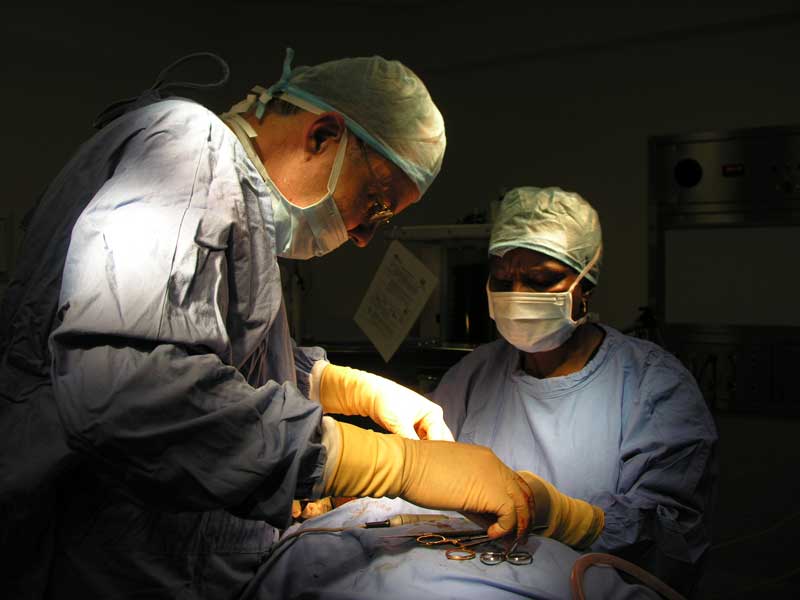 Job responsibilities: First and foremost, a PA helps a pathologist prepare and diagnose tissue, blood and other specimens in a sterile laboratory. Depending upon the work environment, as a PA you might also examine corpses to determine a cause of death. Tasks could include collecting and dissecting postmortem specimens, conducting various tests on samples, taking diagnostic images, and recording your findings. From time-to-time some PAs may be asked to train colleagues or assist with autopsies, which does require some social interaction. However, most responsibilities are lab-based and can be performed independently.
Job responsibilities: First and foremost, a PA helps a pathologist prepare and diagnose tissue, blood and other specimens in a sterile laboratory. Depending upon the work environment, as a PA you might also examine corpses to determine a cause of death. Tasks could include collecting and dissecting postmortem specimens, conducting various tests on samples, taking diagnostic images, and recording your findings. From time-to-time some PAs may be asked to train colleagues or assist with autopsies, which does require some social interaction. However, most responsibilities are lab-based and can be performed independently.
Education required: Federal law requires PAs to have a minimum of an associate degree (American Association of Pathologists’ Assistants). You may choose to complete a bachelor’s or a master’s degree in the field. Most PA programs take about two years to complete. The curriculum consists of science courses like microbiology, genetics, and immunology. Students will also encounter pathology courses. Nearly all programs provide clinical experiences.
Credentialing: PAs may seek a three-year certification through the American Society for Clinical Pathology. Some states require additional criteria and even state licensing before you can begin work. Check your state for details.
Key skills: Successful pathology assistants will demonstrate:
- Active listening skills.
- Analytical/scientific thinking capabilities.
- Attention to detail.
- Competency in information ordering (following rules or arranging data/actions in a specific order).
- Proficiency in using information systems software.
Nuclear Medicine Technologist
Job responsibilities: A nuclear medicine technologist performs imaging tests that help doctors identify abnormalities inside the body. The process involves giving patients small doses of radioactive materials and then using specialized equipment to record images of organs or other body parts where the substances localize. As a nuclear medicine technologist, you’ll have some interaction with patients when you explain procedures to them. You’ll also inspect equipment and possibly administer the radiopharmeceutial material, which is given orally, by injection, or through inhalation.
There are inherent risks in this job. You may be exposed to infectious diseases as well as to radiation. Consequently, you must take measures to protect yourself and be precise in following those protocols.
Education required: An associate or bachelor’s degree in nuclear medicine technology is necessary to enter this field. If you already have a degree in a related science, you may be able to combine that with a 12-month certificate program and enter the profession a little faster. In addition to courses in anatomy and physiology, you’ll be in classes about nuclear physics and radiochemistry.
Credentialing: Many states require a license to practice. See the Society of Nuclear Medicine and Molecular Imaging to find out if your state is one of them. You can also check with your state health department for current rules and regulations.
Two professional organizations, the Nuclear Medicine Technology Certification Board (NMTCB) and the American Registry of Radiologic Technologists (ARRT), offer voluntary certification. Some states that license nuclear medicine technologists will accept this certification. Others will require you to take an exam. Even states where certification isn’t needed, it is advantageous to have certification because it can improve your chances of being hired.
Key skills: Nuclear medicine technologists must possess the following skills:
- Ability to work as a member of a team.
- Attention to detail in data recording and observations.
- Decision-making capabilities.
- Strong communication skills.
- Technical know-how to operate complicated equipment.
Anesthesia Technician
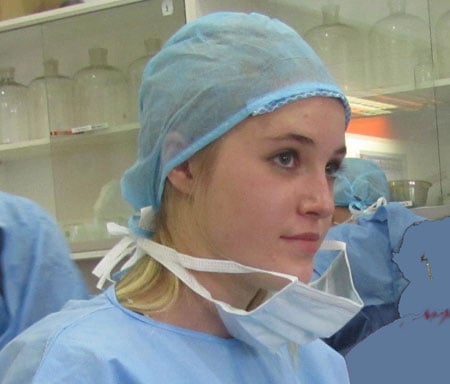 Job responsibilities: If you enjoy working with machinery, but also being a member of a care team with indirect responsibility for patients, then a career as an anesthesia technician may be right for you.
Job responsibilities: If you enjoy working with machinery, but also being a member of a care team with indirect responsibility for patients, then a career as an anesthesia technician may be right for you.
Professionals in this technical role contribute to safe anesthesia care by providing support to the anesthetist. This may include ensuring the anesthesia equipment is working properly, to assessing dosages of medications given to patients. As an anesthesia technician, you are part of a surgical team and will have some interaction with its members as well as with patients.
Education: A high school diploma is the minimum education required, although anesthesia technician degree programs are available. If you’re a high school student, focus on courses in math, science, and technology. Anesthesia technician degree programs will include curriculum topics like pharmacology and anesthesia equipment functionality. At least one year of experience in the field as an intern is recommended.
Credentialing: Although certification is voluntary, there is a national certification exam available that could increase your potential employment opportunities. The national exam is conducted by the American Society of Anesthesia Technologists and Technicians (ASATT) and is the only one officially recognized. During your job search, ensure you have documentation of a basic life support certification since this is a requirement in any hiring situation.
Key Skills: To be successful as an anesthesia technician, you must:
- Be comfortable working with computers, biomedical equipment, and anesthetic devices.
- Communicate well.
- Focus on details.
- Problem solve.
Radiation Protection Technician
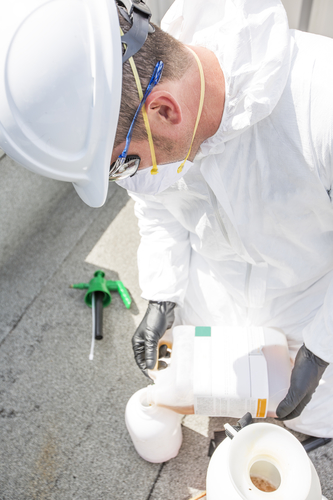 Job Responsibilities: Although not specifically a medical lab job, radiation protection technicians provide a valuable service to overall public health. RPTs are also referred to as nuclear monitoring technicians or hazardous materials removal workers. As the titles imply, RPTs track radiation levels. They also expose leaks or potential hazards and then remove them. As an RPT you may even find yourself organizing evacuations of contaminated areas. The type and seriousness of the emergency determine the protocol followed. Some RPTS specialize in decontamination, emergency response or storage, and disposal. Or you’ll analyze environmental samples to determine levels of contamination.
Job Responsibilities: Although not specifically a medical lab job, radiation protection technicians provide a valuable service to overall public health. RPTs are also referred to as nuclear monitoring technicians or hazardous materials removal workers. As the titles imply, RPTs track radiation levels. They also expose leaks or potential hazards and then remove them. As an RPT you may even find yourself organizing evacuations of contaminated areas. The type and seriousness of the emergency determine the protocol followed. Some RPTS specialize in decontamination, emergency response or storage, and disposal. Or you’ll analyze environmental samples to determine levels of contamination.
There are risks involved in being an RPT. You may be exposed to contaminated material or radiation. Training programs provide extensive information on how to protect yourself, thereby minimizing your risk factors.
Education Requirements: Because there are specializations within the field of radiation protection, the type of training varies. Many positions require a certificate or associate’s degree in radiation safety or technology. Some employers may provide on-the-job training.
Formal programs are heavily based in math and science. You’ll also learn about radiation safety, contamination control, and radiological chemistry. The structure and nature of nuclear or power plant systems are generally included as part of the curriculum. There’s little doubt you’ll have lab and internship experiences along with the didactic portion of your studies.
Credentialing: The Occupational Health and Safety Organization (OSHA) is the federal entity that maintains and audits regulations concerning the safe removal of radiation and nuclear waste. As a result, professionals who work with and remove those products must undergo a mandatory 40-hour training course. You may also be required to complete three months of additional training through the Nuclear Regulatory Commission (NRC). This additional training provides information about the protective gear you’ll wear, the equipment you’ll use, and the materials you may encounter.
Key Skills: A successful radiation protection technician will demonstrate:
- Attention to detail.
- Calm demeanor in crisis situations.
- Capability to work independently with accuracy and precision.
- Communication skills.
- Cooperative attitude in working with a team.
- Critical and logical thinking.
- High energy.
- Mechanical aptitude.
- Medical and anatomical competencies.
- Time management efficiencies.
Medical Equipment Repair Technician
Job responsibilities: Although this technician job may feel non-medical, it is critically important to all medical facilities. When healthcare equipment breaks down, it must be repaired – and repaired quickly. If it doesn’t work correctly, a potentially severe illness or disease could be missed or misdiagnosed. So medical equipment repair technicians are vital members of all medical teams even though the care
provided to patients is indirect.
The duties of a medical equipment repair technician vary by type of equipment, but most repair technicians
install, clean, maintain and fix medical equipment. Within those primary tasks, you’ll keep detailed service records and be presented with the latest updates in equipment software. You may even learn how to use and install the newest equipment available on the market. Although the scope of this profession is outside of a medical laboratory, the work is independent and a few steps removed from excessive chaotic environments.

Education required: Due to the sophistication of medical equipment, it’s best to obtain an associate’s degree in biomedical equipment technology. In this kind of a training program, you’ll learn hardware and software repair, electronics and physics. Because the equipment is designed to inspect the human body, you’ll also learn medical terminology and anatomy and physiology. Throughout a training program you’ll be exposed to a generous variety of medical equipment where you’ll learn to identify and correct mechanical problems. A bachelor’s program offers more in-depth content where you’ll encounter more complex and electronic-based medical equipment.
Credentialing: While registration, licensure, or certification isn’t mandatory, employability may be improved if you obtain certification through the Association for the Advancement of Medical Instrumentation (AAMI). Three types of certification are available. A certified laboratory equipment specialist (CLES), a certified biomedical equipment technician (CBET), and a certified radiology equipment specialist (CRES).
Key Skills: A capable medical equipment repair technician must possess or acquire:
- Comfort in working independently with minimal supervision.
- Decision making capabilities.
- Dexterity.
- Mechanical, safety testing, and troubleshooting skills.
- Precision in the work environment.
- Problem solving competencies.
- Stamina.
- Strong communication style.
- Time management efficiencies.
Conclusion
Each occupation listed provides a calm and quiet work environment. For individuals who gather energy in this type of setting, one of careers may be a perfect fit for you. Although all require small to moderate interactions with patients or colleagues, none of them provide direct patient care. Education requirements for most of them are minimal so that you can get into the field quickly.
Before making any final decision to obtain a certificate or degree, talk to a few people in the field. Find out what they like about their careers, and what some of the drawbacks are. Discussions like these will help you narrow your career choices so that you can make the one best suited to your interests and personality.
Thank you for stopping by today.
Would you like to start learning lab skills today? You can!
Several of the medical lab technician careers outlined in this article require drawing blood. You can practice that skill right away.
The Apprentice Doctor® Phlebotomy Course and Kit is the resource that will teach you how to confidently perform phlebotomy procedures in a couple of hours! If you want to perfect that skill, why not learn how to perform venipuncture procedures now?
You may decide you prefer direct-patient care. If that’s the case, you may be interested in wound suturing.
The Apprentice Doctor® Suturing Course and Kit is a resource that will teach you How to Suture Wounds in a couple of hours! If you think you may be drawn to direct-patient care, why not perfect suturing techniques now?
For other products, visit our shop.
If these careers have sparked a new, or even renewed interest in allied health, you may be interested in reading further:
- Is Your High School Curriculum Preparing You for a Medical Career?
- Explore Your Options in Allied Health.
- Becoming a Certified Phlebotomist.


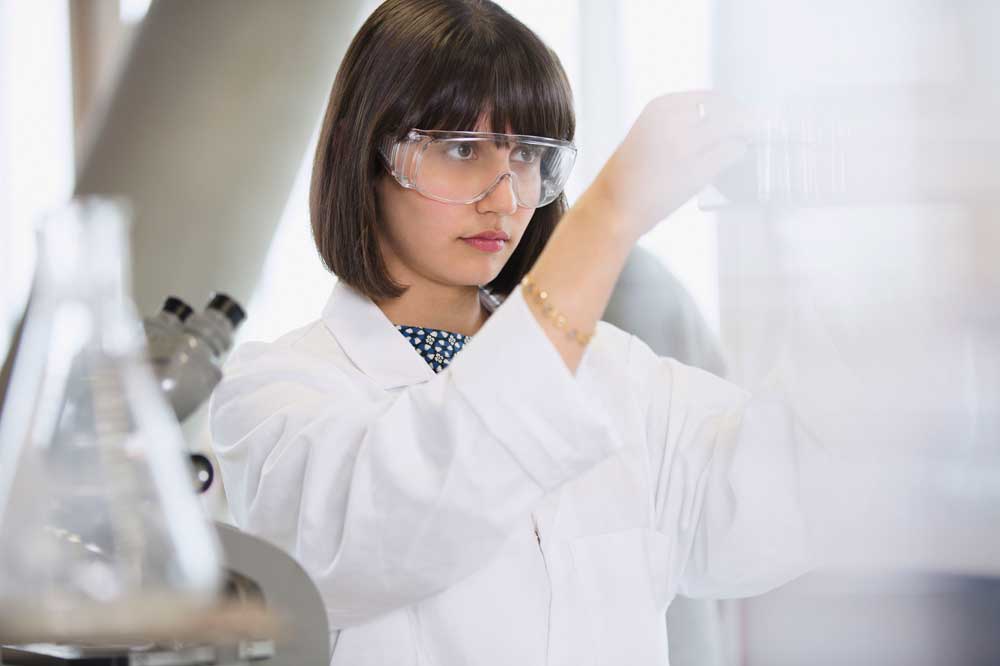
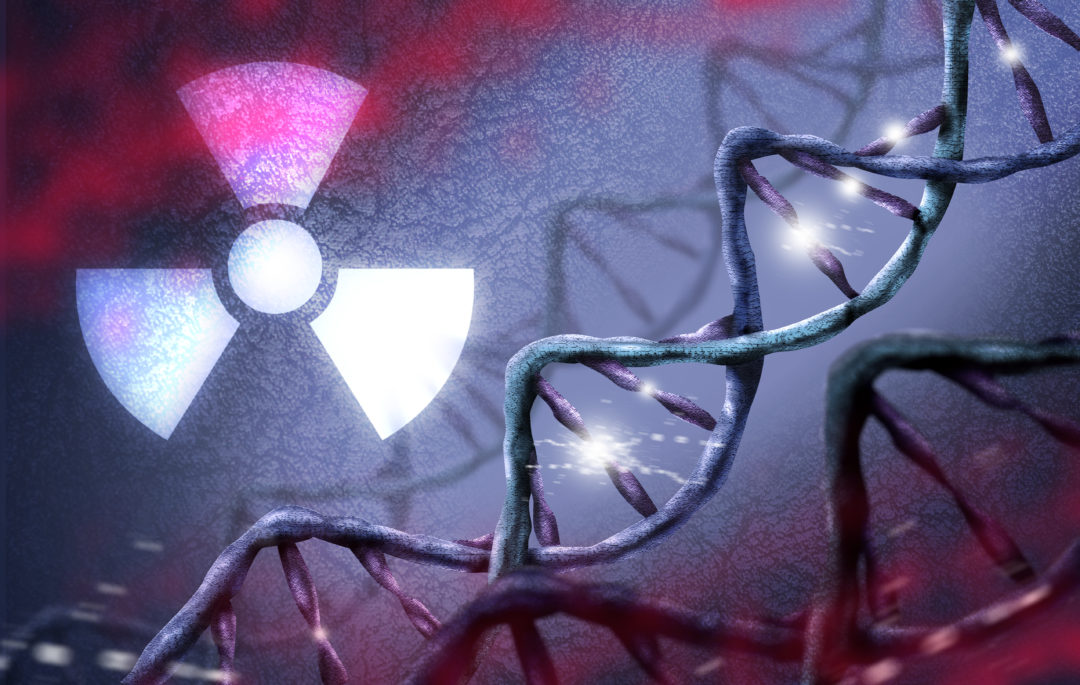
I would like to learn medical laboratory technician
I would like to learn medical laboratory technician
may God help me i want to be in the field
Very useful.Thanks for sharing..
visit : Good Shepherd Institutions
Very useful.Thanks for sharing..
visit : Good Shepherd Institutions
I am interested in the anesthesia technician training program..
I have interest on lebaotry tecnation
If you review the article, determine which position best suits you and your personality. That section will give you information about the education you need from which you can research accredited schools who provide it.
I have interest on lebaotry tecnation
Great insight article for my soon to be senior… loves science and research,, so helping through a lab seems to be up his alley.
I am a medical laboratory technician and am in search of a job. please I’ll appreciate it if this site can help me with one. Thanks.
’m glad you enjoyed the article and thank you for visiting our site. The vision of The Apprentice Doctor is to be a positive influence in the lives of future medical professionals. Our mission is to assist medical professionals – whether aspiring, in training or practicing – with suitable medical and surgical simulation training resources and events. We are not a site that helps individuals with job searches.
We can, however, provide some suggestions on how to go about finding a position. While these tips may be things you are already doing, perhaps there will be one or two that you will find helpful.
1. Have an appropriate resume. This means one that set up to highlight what you can do. It is equally importantly that it be error-free. It is your first impression to any employer.
2. Make it clear right away if you are certified.
3. Post your resume on all the career sites. Check on them regularly.
4. Create cover letters that are unique to each job you apply for. Writing cover letters is an art and employers can tell right away if you draft one and then simply cut and paste in a different company’s name. Take the time to write one that lets them know you have researched their company.
5. Network. If you are a member of any professional organization, attend their events and get to know others in the field. They may know of jobs that are not posted anywhere and you can apply for those.
6. Conduct employer interviews. Research the companies you would like to work for. Once you have a short list, call them and ask if you can interview them about what it’s like to work in certain jobs. Some may be happy to talk to you and in the process get to know you.
7. Job shadow. If you can, call up potential employers and ask if you can shadow one of their employees for a week. These would be unpaid hours, but the point would be to get to know your peers and for them to get to know you.
8. Use LinkedIn. Having a LinkedIn profile and then looking for potential employers on that website can also be helpful.
9. If you get called in for an interview, following these standard guidelines: Research the company. Know who they are and what they do. Have a list of questions you’d like to ask them when they give you the opportunity, which they normally do. Dress professionally, be a little early, turn off your phone, and if you have children, don’t bring them with you.
10. If they have you fill out an application, fill it all out. Don’t write, “see resume” on it. Part of filling out their application completely is that they know where everything is on their own form, which makes interviewing easier for them. Plus, it lets them know you are energetic and follow directions.
11. Follow up all interviews with a thank you note, reiterating your interest in the position.
12. If you don’t hear back from them immediately, follow up.
The most important thing is to be diligent. Sometimes it feels looking for a job is a full-time endeavor. Do a little bit each day and stick with it until you find what you’re looking for. Medical lab tech jobs is still a fast-growing field, so if you’re tenacious you will be successful.
Dr. Anton
I would like to take medical laboratory
Thought this career was meant to be good for introverts 🙁 Sounds like a lot of social stuff just to get a foot in the door.
Introvert – does not exclude you from a clinical career – introverts make genuine and sincere relationships.
I am a medical laboratory technician and am in search of a job. please I’ll appreciate it if this site can help me with one. Thanks.
I’m interested in medical laboratory technician.
Thank you for visiting our site. That’s great that you want to become a medical lab technician. As you read in the article, there are a number of careers to choose from. You’ll have to acquire an associate degree for some; a bachelor’s degree for others. It’s helpful if you have had a solid high school career, complete with curriculum in science and math. However, if that’s lacking, you can pick up some pre-requisites at a community college in your area. Your next step is to search for a college, or vocational school in your regional area for the medical lab technician program you are most interested in. Then contact the school for admissions requirements. I recommend that you visit the school, and take some time to view the labs and even in sit in one to see if you can envision yourself as a med lab tech student. If you can, then you’ve taken a first step in realizing your professional dream.
Am interested in medical lab technician
Thank you for visiting our site. That’s great that you want to become a medical lab technician. As you read in the article, there are a number of careers to choose from. You’ll have to acquire an associate degree for some; a bachelor’s degree for others. It’s helpful if you have had a solid high school career, complete with curriculum in science and math. However, if that’s lacking, you can pick up some pre-requisites at a community college in your area. Your next step is to search for a college, or vocational school in your regional area for the medical lab technician program you are most interested in. Then contact the school for admissions requirements. I recommend that you visit the school, and take some time to view the labs and even in sit in one to see if you can envision yourself as a med lab tech student. If you can, then you’ve taken a first step in realizing your professional dream.
but it is very deficult to get job in abroad..even i have 5 years of experiance, please allow us to work in everywhere in this world and recruit directly, evreyone ask money for the interview then for visa process, many of them in india cheated by fraud agency or recruiters, so they spoiled our lives, we skills and knowladge so try to do the needfull.
Yes – that is sad 🙁